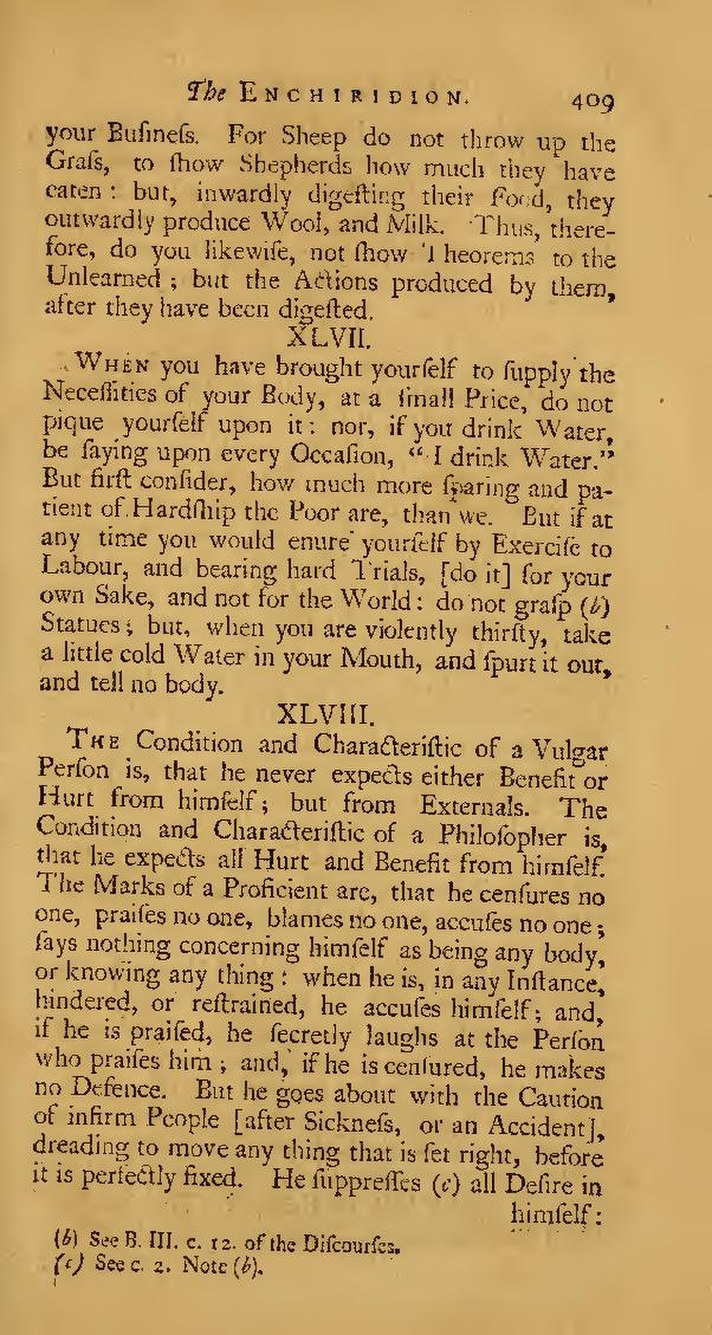your Business. For Sheep do not throw up the Grass, to show Shepherds how much they have eaten: but, inwardly digesting their food, they outwardly produce Wool, and Milk. Thus, therefore, do you likewise, not show theorems to the Unlearned; but the Actions produced by them, after they have been digested.
XLVII.
When you have brought yourself to supply the Necessities of your Body, at a small Price, do not pique yourself upon it: nor, if you drink Water, be saying upon every Occasion, "I drink Water." But first consider, how much more sparing and patient of Hardship the Poor are, than we. But if at any time you would enure yourself by Exercise to Labour, and bearing hard Trials, [do it] for your own Sake, and not for the World: do not grasp[1] Statues; but, when you are violently thirsty, take a little cold Water in your Mouth, and spurt it out, and tell no body.
XLVIII.
The Condition and Characteristic of a Vulgar Person is, that he never expects either Benefit or Hurt from himself; but from Externals. The Condition and Characteristic of a Philosopher is, that he expects all Hurt and Benefit from himself. The Marks of a Proficient are, that he censures no one, praises no one, blames no one, accuses no one; says nothing concerning himself as being any body, or knowing any thing: when he is, in any Instance, hindered, or restrained, he accuses himself; and, if he is praised, he secretly laughs at the Person who praises him; and, if he is censured, he makes no Defence. But he goes about with the Caution of infirm People [after Sickness, or an Accident], dreading to move any thing that is set right, before it is perfectly fixed. He suppresses[2] all Desire in
